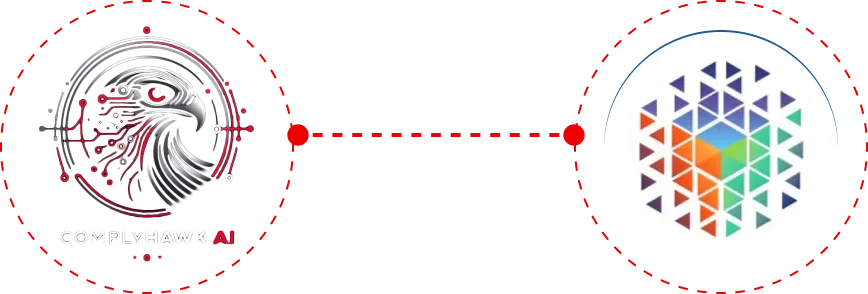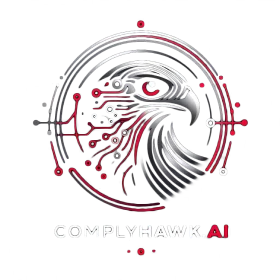- Solutions
By Company
By Industry
- Partners
- About Us
- Contact Us
Streamline Your Path to SDAIA Certification
A concise description that explains how the service simplifies and streamlines the complex process of achieving and maintaining SDAIA compliance, emphasizing the ease and efficiency brought by automation.

Our Team Has Worked with Clients at





What is SDAIA?
Founded in 2019, the Saudi Data and Artificial Intelligence Authority (SDAIA) is a government entity dedicated to driving the Kingdom’s data and AI agenda. SDAIA aims to harness data as a national asset, promote the application of AI across various sectors, and ensure that data privacy and protection are maintained.
The authority encompasses several key areas, including data governance, AI development, and compliance with international data security standards. SDAIA’s establishment aligns with Saudi Arabia’s Vision 2030, which seeks to diversify the economy and reduce dependence on oil by promoting technological innovation.
The standard outlines a comprehensive framework of controls designed to secure payment card data at all stages of its lifecycle—from the point of sale to storage and transmission. These controls cover areas such as network security, access control, encryption, and monitoring, providing a holistic approach to protecting cardholder data.

What's Included With SDAIA
All-in-One Platform for Your SDAIA Needs
Real-Time Monitoring
Stay compliant with 24/7 oversight and full visibility into your SDAIA status.
Policy Management Hub
Streamline your documentation and policy management with over 20 editable, auditor-approved templates.
Automated Asset Tracking
Maintain an accurate inventory of all physical and virtual assets within your organization.
Risk Evaluation Tools
Conduct self-assessments to efficiently monitor and report on your security program’s effectiveness.
Vendor Management System
Centralize the management of vendor security assessments, including questionnaire handling and reviews.
Expert Support Access
Get real-time assistance from compliance experts and former auditors via live chat.
Frequently Asked Questions
SDAIA’s objectives include:
- Data Governance: Establishing policies and frameworks for data management and protection.
- AI Development: Promoting the development and deployment of AI technologies across various sectors.
- Regulatory Compliance: Ensuring that data-related activities comply with national and international standards.
- Public Awareness: Educating the public about the benefits and risks associated with data and AI.
SDAIA plays a pivotal role in enhancing data security through:
- Compliance Requirements: Mandating adherence to international data security standards such as ISO27001.
- Risk Management: Encouraging organizations to adopt risk-based approaches to data security.
- Incident Response: Establishing protocols for responding to data breaches and other security incidents.
- Data Classification: Implementing guidelines for classifying and protecting different types of data.
SDAIA’s compliance frameworks include several internationally recognized standards:
- ISO27001: A standard for information security management systems (ISMS).
- PCI DSS: A set of security standards for payment card data protection.
- NIST: The National Institute of Standards and Technology’s cybersecurity framework.
- GDPR: The General Data Protection Regulation for data privacy in the European Union.
Yes, there are several considerations specific to the Middle East:
- Cultural Sensitivity: Understanding and respecting local cultural norms and values when handling data.
- Regulatory Landscape: Navigating the complex regulatory environment, which may differ from international standards.
- Language Barriers: Ensuring that compliance documentation and training materials are available in Arabic.
- Geopolitical Factors: Being aware of regional political dynamics that could impact data security.
Organizations can ensure compliance with SDAIA by:
- Conducting Regular Audits: Performing internal audits to assess adherence to SDAIA’s regulations and frameworks.
- Training Employees: Providing employees with training on data governance and compliance practices to foster a culture of awareness.
- Implementing Best Practices: Establishing data protection policies and procedures in line with SDAIA’s guidelines.
SDAIA offers a range of resources for CISOs, including:
- Guidance Documents: Detailed guidelines on compliance requirements and best practices for data protection.
- Workshops and Training: Opportunities for training and professional development focused on data security and AI governance.
- Networking Opportunities: Platforms for collaboration and knowledge sharing among industry peers and stakeholders.
Non-compliance with SDAIA may result in:
- Financial Penalties: Imposing fines or other monetary sanctions for violations of data protection regulations.
- Reputational Damage: Loss of trust among customers and partners, affecting business relationships.
- Increased Scrutiny: Heightened regulatory oversight and audits from authorities.
SDAIA supports AI innovation by:
- Funding Initiatives: Providing financial backing for AI projects that align with national goals.
- Creating Collaboration Opportunities: Promoting partnerships between public and private sectors to foster AI research and development.
- Establishing Ethical Guidelines: Developing frameworks to ensure that AI technologies are deployed responsibly and ethically within the Kingdom.
Ready to Simplify Your SDAIA Compliance?
Experience the ease of managing your SDAIA certification with our all-in-one platform. Get started today to streamline your compliance, enhance your security posture, and stay ahead of the curve.
